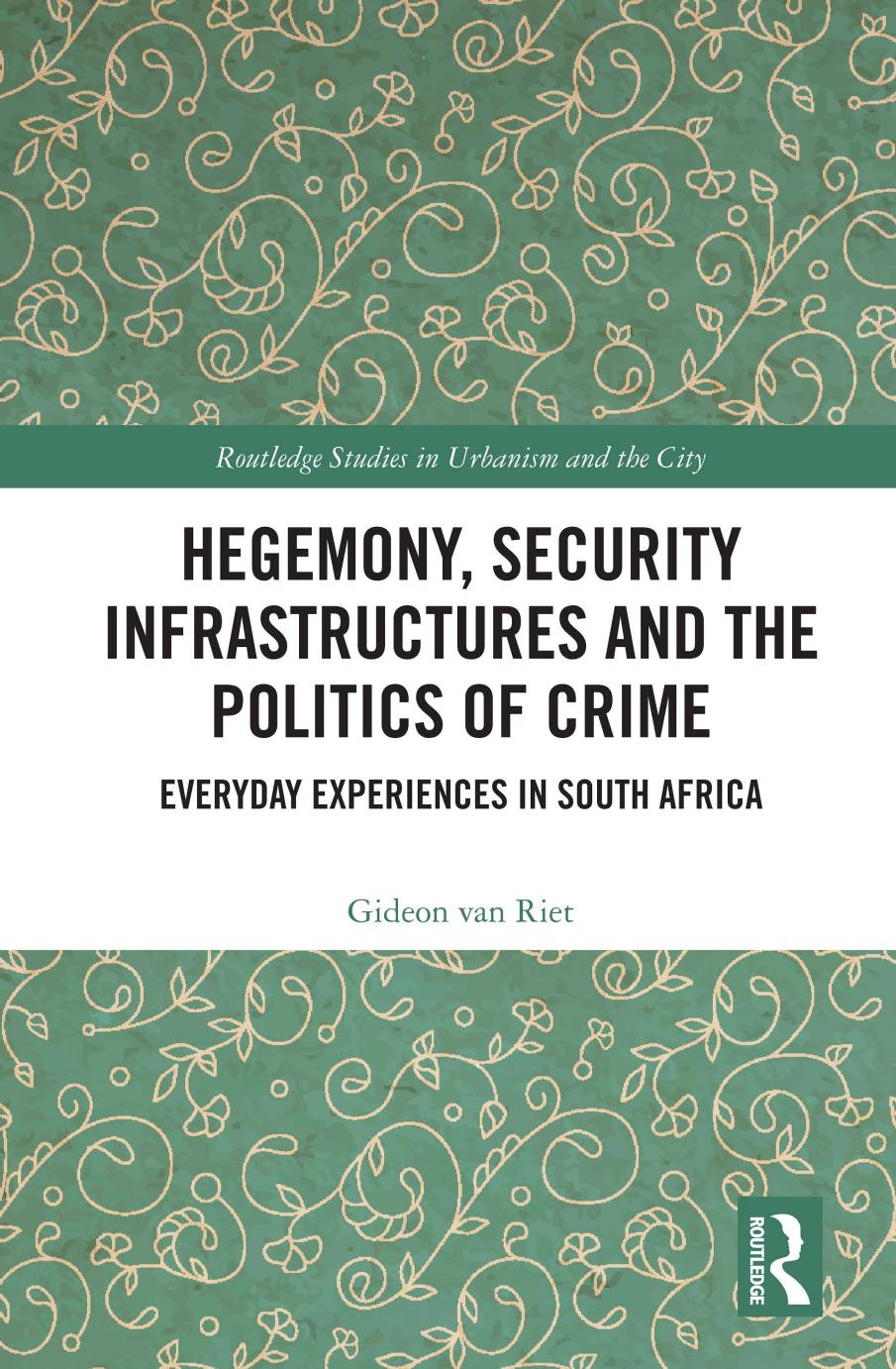
Hegemony, Security Infrastructures and the Politics of Crime; Everyday Experiences in South Africa PDF
2022·6.4799 MB·other
Most books are stored in the elastic cloud where traffic is expensive. For this reason, we have a limit on daily download.
Preview Hegemony, Security Infrastructures and the Politics of Crime; Everyday Experiences in South Africa
Description:
This book examines the politics of crime and the response to it in Potchefstroom, a small settler colonial city in South Africa. It draws on the city’s everyday practices and experiences to offer local bottom-up insights into security beyond the state.
The book provides a comprehensive understanding of security beyond the state and how security workers and residents experience and perceive their own security practices, their daily interactions with other security providers which influences power dynamics between those who express fear through various platforms and those deemed potential criminals. It aids in re-conceptualising violence and security governance in South Africa with a view to analysing the processes of crime prevention and management, the changing nature of public and private spaces and how these spaces interact with state and local authorities. In a rigorous exploration of the ways to tackle the complex problem of crime, the book critiques an overreliance on security infrastructures such as social media, gated barriers, neighbourhood residents’ associations and private security companies. It also looks at how crime is treated as an individual as opposed to a societal problem. The book addresses the urgent need for collaboration across these fault lines to promote a more inclusive security in a broader fragmented social and political context.
With a novel analytical approach based on the twin optics of infrastructure and post-structural hegemony, the book will be relevant to scholars and students of South African politics and critical security studies, as well as the international audience interested in crime and private security.
See more
The list of books you might like
Most books are stored in the elastic cloud where traffic is expensive. For this reason, we have a limit on daily download.
